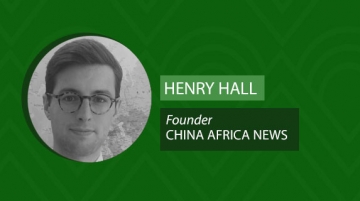
The Western and African media have long fueled the myth that Chinese investors are buying up vast tracts of land across Africa as part of some neo-colonial plan to export food back to China. Sure, on one level, the theory appears plausible: China has around 20% of the world’s population with less than 7% of the planet’s arable land, so it seems obvious that Beijing might look abroad in search of farmland to feed its people. There’s only one small problem. That premise, no matter how convincing it may sound, is just flat-out wrong.
Johns Hopkins University professor Deborah Brautigam detailed all of the reasons why this myth remains so durable in her 2015 book “Will Africa Feed China?” A lot of it, according to Brautigam,has to do with a mix of bad journalism, Western narratives of African victimization and the Chinese themselves who oversell their ambitions in Africans.
Now, though, there’s a twist to the story. Not only are the Chinese not on a land-buying spree in Africa, it appears they are actually doing more to support African agricultural development than any other country in the world.
Professor Ian Scoones from the Insitute of Development Studies at the University of Sussex recently completed a four-country research project into Chinese agricultural engagement in Africa and discovered that the combination of Chinese immigrant farmers in Africa along with the deployment of Chinese agricultural technology and PRC government training programs that have brought some 10,000 African officials to China have all had a remarkably positive impact on Africa’s struggling agricultural sector.
Professor Scoones joins Eric & Cobus to discuss why Chinese engagement in African agriculture is not what it seems.
 Ian Scoones is co-director of the ESRC STEPS Centre at Sussex and joint convenor of the IDS-hosted Future Agricultures Consortium. He is an agricultural ecologist by original training whose interdisciplinary research links the natural and social sciences and focuses on the relationships between science and technology, local knowledge and livelihoods and the politics of policy processes in the context of international agricultural, environment and development issues. A social and institutional perspective is at the centre of his work, which explores the linkages between local knowledges and practices and the processes of scientific enquiry, development policy-making and field-level implementation. Over the past twenty-five years, he has worked on pastoralism and rangeland management, soil and water conservation, biodiversity and conservation, as well as dryland agricultural systems, largely in eastern and southern Africa. A central theme has been a focus on citizen engagement in pro-poor research and innovation systems. Most recently he has been working on the governance of agricultural biotechnology in India and veterinary/animal health science and policy in Africa, including projects on livestock marketing and foot-and-mouth disease in southern Africa and the international responses to avian influenza.
Ian Scoones is co-director of the ESRC STEPS Centre at Sussex and joint convenor of the IDS-hosted Future Agricultures Consortium. He is an agricultural ecologist by original training whose interdisciplinary research links the natural and social sciences and focuses on the relationships between science and technology, local knowledge and livelihoods and the politics of policy processes in the context of international agricultural, environment and development issues. A social and institutional perspective is at the centre of his work, which explores the linkages between local knowledges and practices and the processes of scientific enquiry, development policy-making and field-level implementation. Over the past twenty-five years, he has worked on pastoralism and rangeland management, soil and water conservation, biodiversity and conservation, as well as dryland agricultural systems, largely in eastern and southern Africa. A central theme has been a focus on citizen engagement in pro-poor research and innovation systems. Most recently he has been working on the governance of agricultural biotechnology in India and veterinary/animal health science and policy in Africa, including projects on livestock marketing and foot-and-mouth disease in southern Africa and the international responses to avian influenza.







